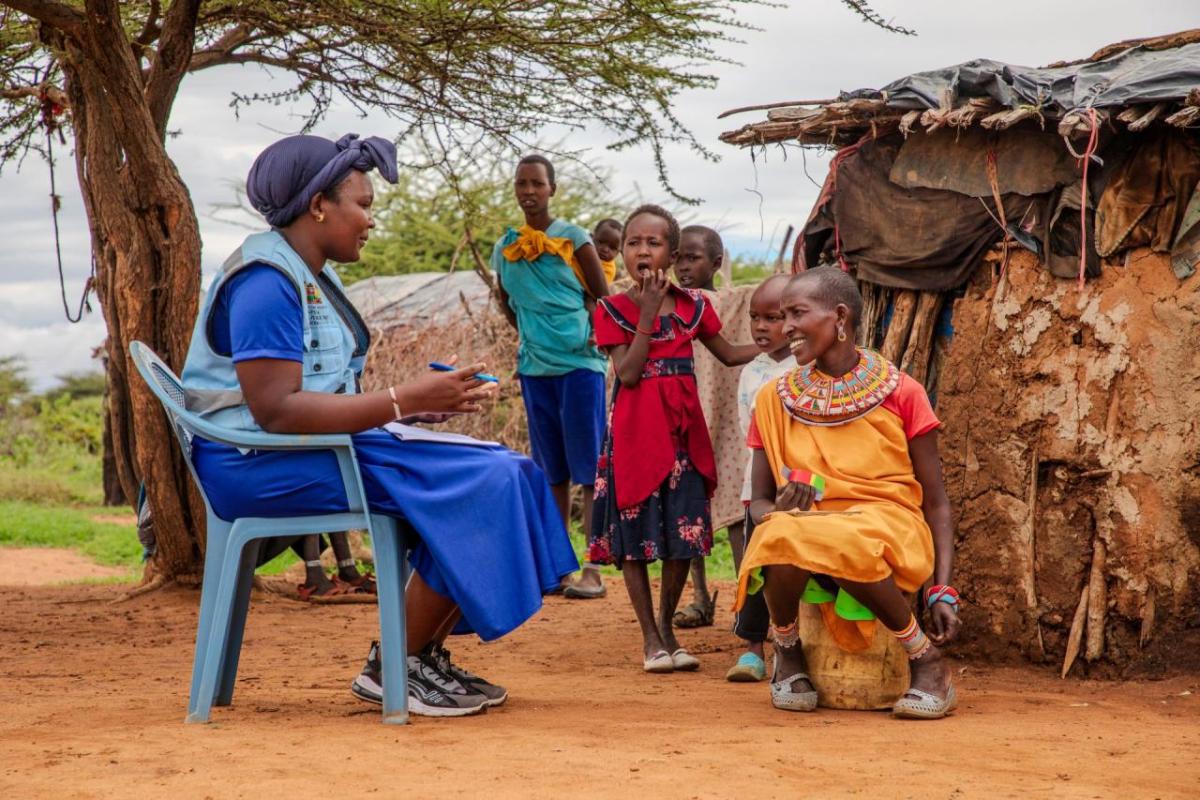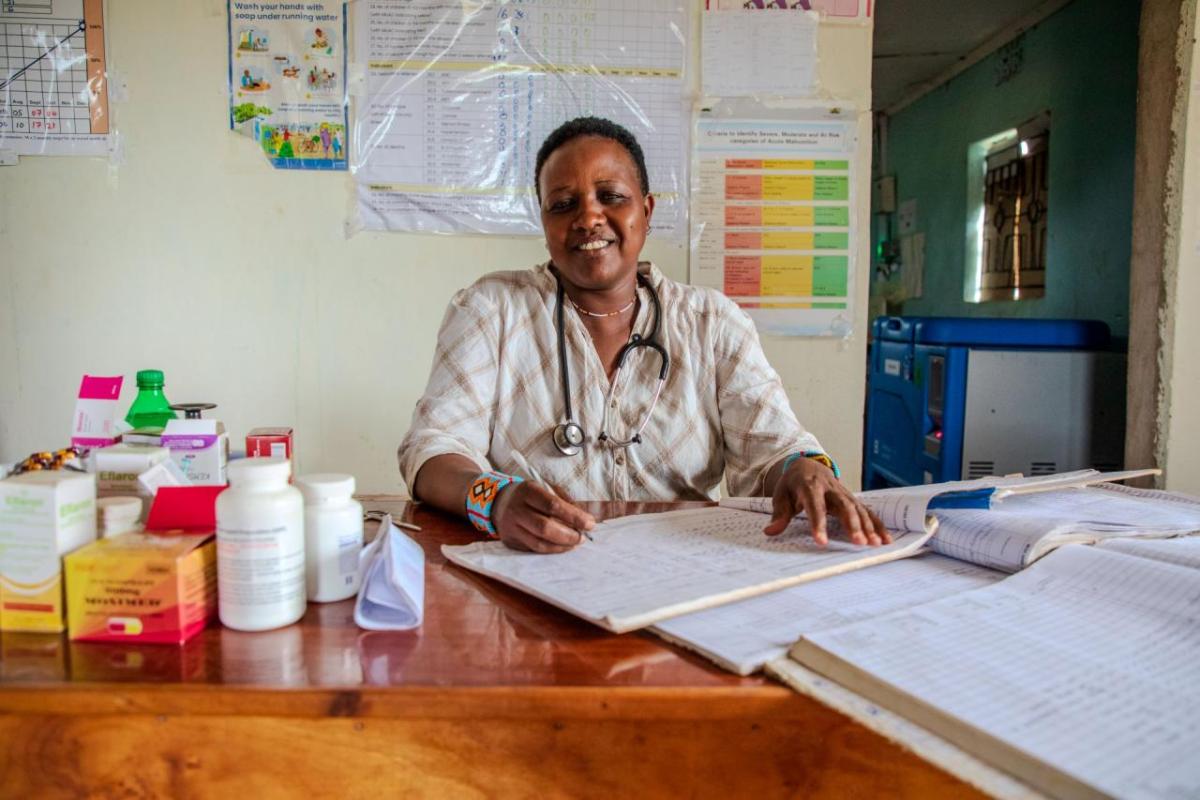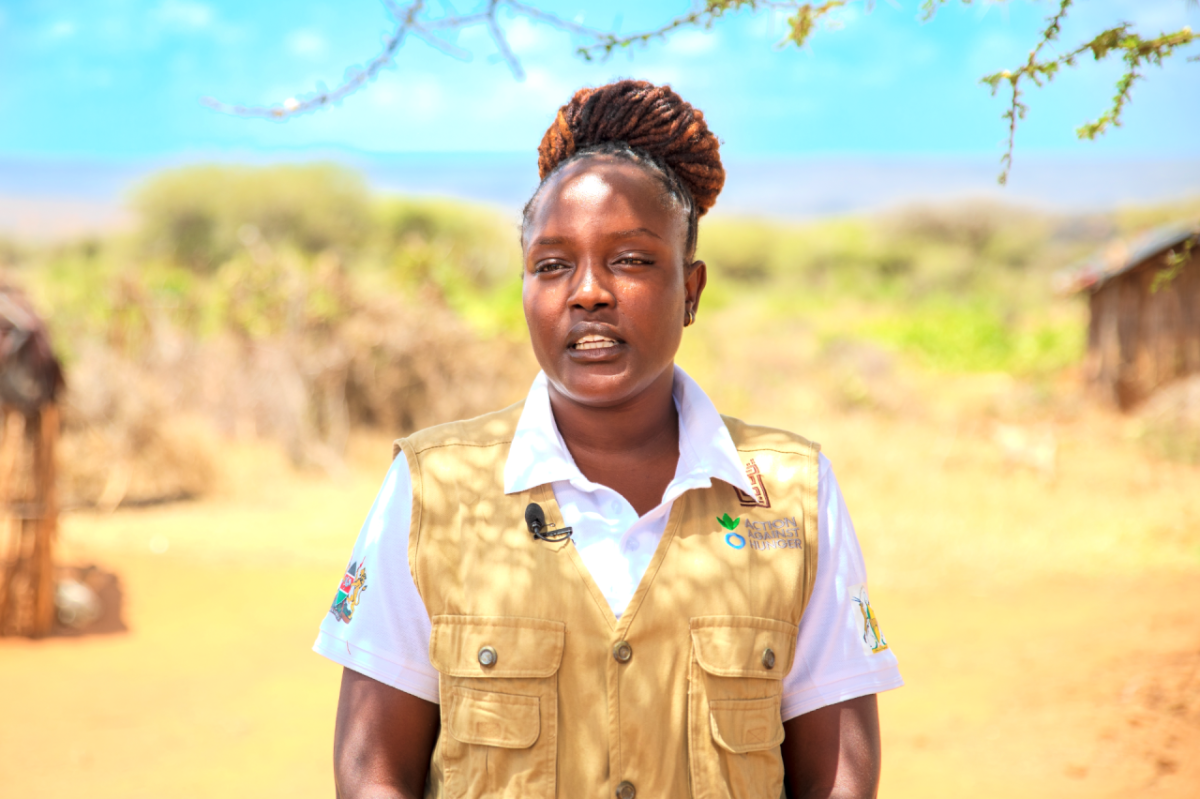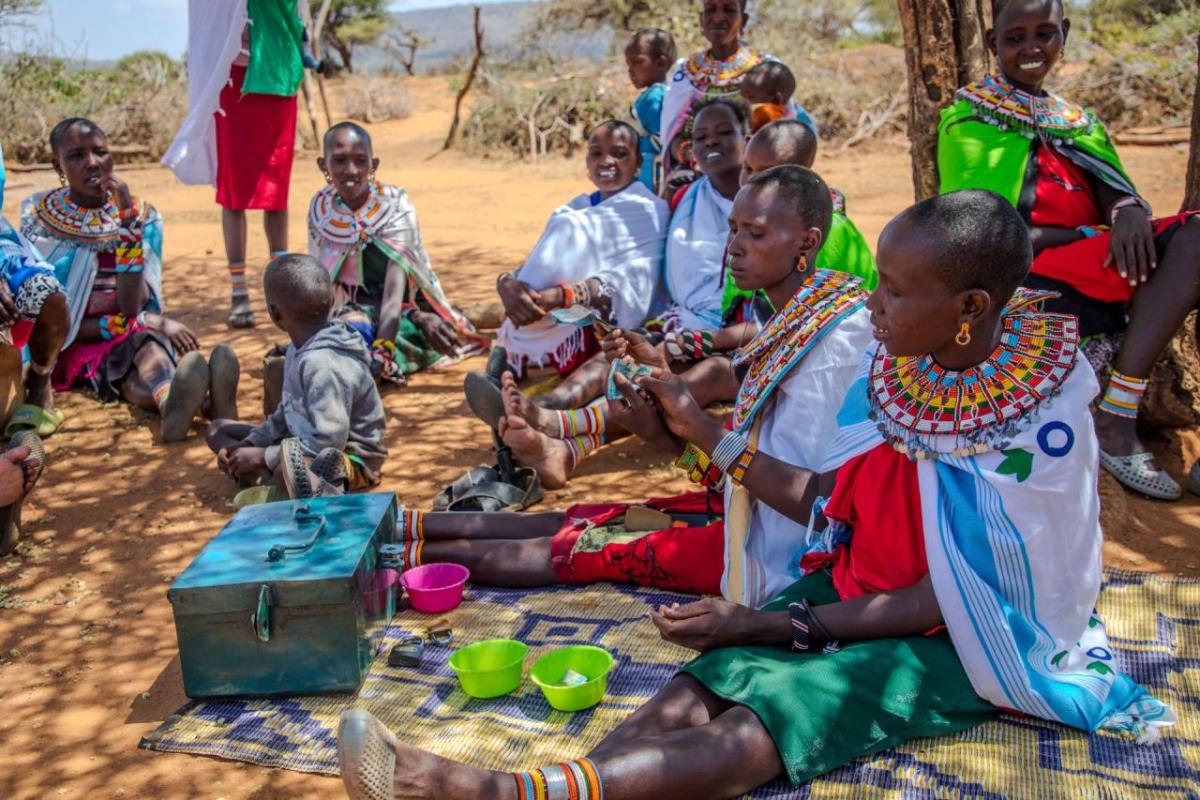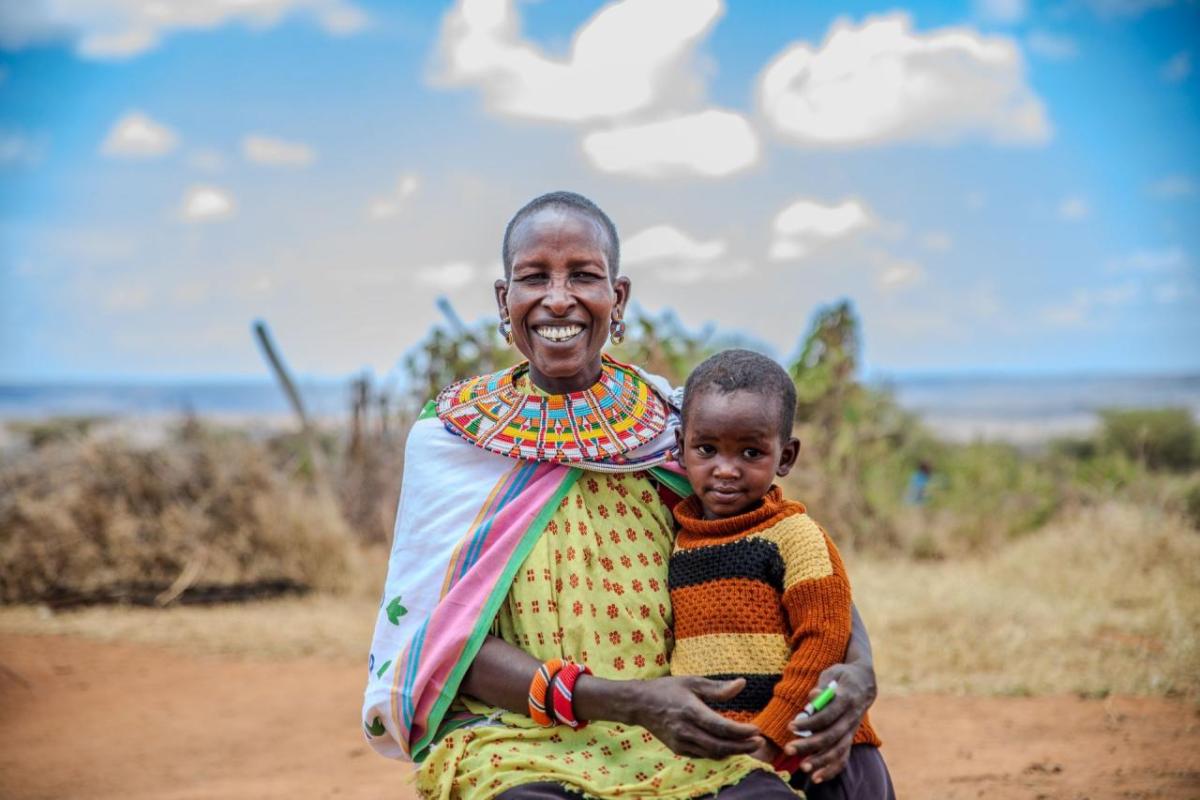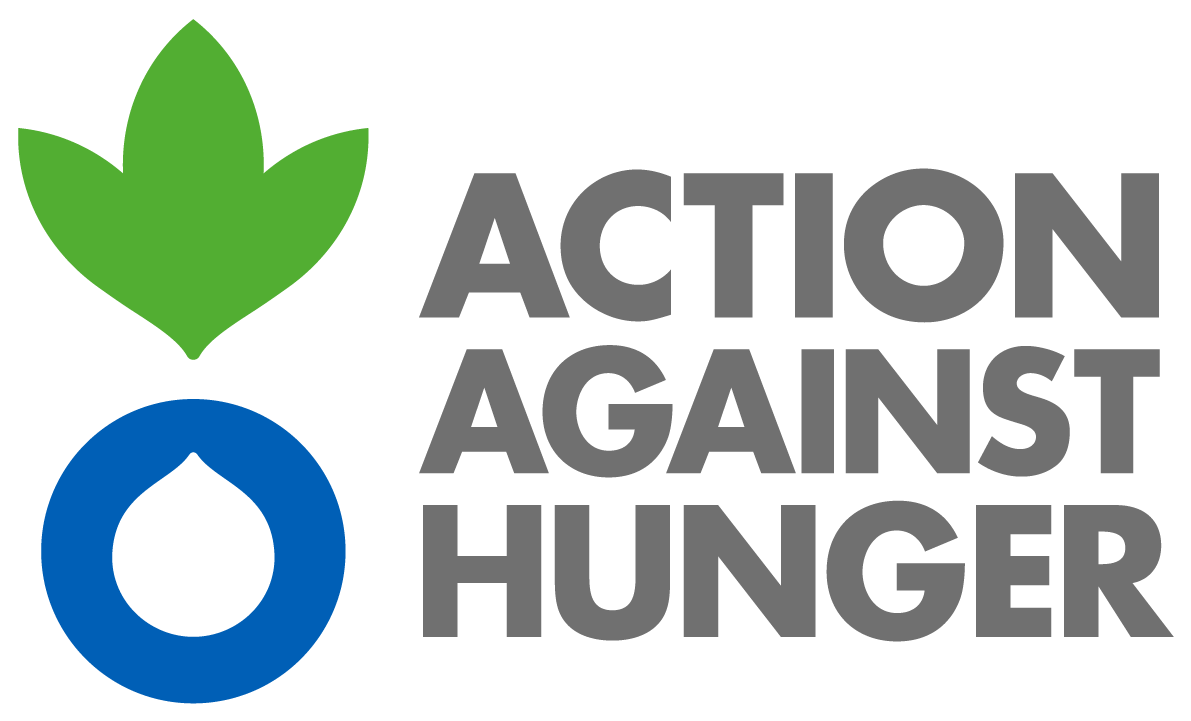Building a Hunger and Malnutrition Free Future: One Community at a Time
Everyday heroes leading nutritional interventions
Published by Action Against Hunger.
New York, NY - May 1, 2025
Veronica Lalakal, Community Health Worker
In one of Kenya’s most remote villages, Veronica Lalakal treks three hours nearly every day to reach families in need. The journey is not easy. Veronica travels over rivers without bridges and unpaved roads that are often obstructed. During the rainy season, the journey becomes far worse as flooding washes away all traces of paths. Still, Veronica is committed to visiting families in Oldonyiro, an area with some of the region’s worst rates of malnutrition. "Malnutrition runs rampant in Oldonyiro, and especially in the small village of Lebarsherik,” said Veronica.
Veronica is a Community Health Worker and one of Action Against Hunger’s many local heroes working in isolated areas that would otherwise not receive healthcare. Community Health Promoters are local volunteers who work with Action Against Hunger to educate their communities about nutrition and link them to the resources Action Against Hunger has to offer.
During one of Veronica’s door-to-door visits, she met a two-year-old named Enza. Veronica used a Mid-Upper Arm Circumference (MUAC) band during Enza’s check-up, a tool that helps caregivers and Community Health Promoters quickly and easily detect severe acute malnutrition in children. Based on the MUAC band’s results, Veronica suspected that Enza was suffering from malnutrition. She brought the toddler and her mother, Narikuni, to see the local health center for a full assessment.
Emily Lerosion, Nurse in Charge
Emily Lerosion is the nurse in charge at the Lebarsherik Health Center, a facility supported by Action Against Hunger, and she works closely with Veronica to identify and treat malnourished children. Emily reports that the center treats several cases of severe acute malnutrition every week, providing holistic care that helps children return to full nutritional health. "Once we identify a child with malnutrition, we conduct tests to check for other health-related issues, such as anemia or malaria. We register them in our malnutrition register, enroll them in our outpatient therapeutic or supplementary feeding program, administer deworming medication, and collaborate with community health promoters to monitor their progress”, she says. “Children return for progress checks every two weeks.”
Emily confirmed that Enza was suffering from malnutrition and prescribed her ready-to-use supplemental food (RUSF), a high-calorie, peanut butter-like medication that can help a child recover from malnutrition in only a few weeks. Soon enough, Enza was back to full nutritional health.
Winne Makena, Nutrition Volunteer
Emily and Veronica work with Action Against Hunger nutrition volunteers like Winnie Makena, who holds another critical role in the community health system. Winnie leads nutrition counseling workshops for mothers across several villages in Oldonyiro. She trains mothers in the safest and most effective ways to feed their children. Without volunteers like Winnie who can work directly in hard-to-reach communities, many children would never be properly treated for malnutrition. Fighting malnutrition is a community effort and individuals like Veronica, Emily, and Winnie provide a crucial link between communities and Action Against Hunger’s nutritional interventions.
However, tackling hunger requires more than just short-term nutrition support; it is a complex and multi-layered issue not just caused by lack of food. Inequity, poverty, conflict, and lack of sanitation are just some of the major contributors to hunger. Action Against Hunger implements holistic, long-term strategies to address both the causes and consequences of hunger in all our programs.
Support Groups
One of the methods for fighting hunger long-term in Kenya is creating support groups where peers can share experiences and learn from each other. After attending one of Winnie’s workshops, women are connected to a support group where they can continue developing their nutritional knowledge. "We have formed mother-to-mother support groups where mothers are trained on nutrition, specifically on which foods to use based on their nutritional value, and best practices to enhance their families' health,” said Winnie.
Narikuni enrolled in one of Action Against Hunger’s women-to-women support groups. She started a kitchen garden at her home to grow vegetables like eggplants and spinach for a well-balanced diet that would help sustain Enza’s recovery from malnutrition. Action Against Hunger supported her with a water tank to store rainwater and installed a bio-sand water filtration system in the community to ensure clean water access. Now, Narikuni serves as secretary of her women-to-women support group.
Gerald Mwangi, Field Coordinator for the region, notes that Action Against Hunger is addressing a range of issues through support groups. "In Oldonyiro, Action Against Hunger has established over 60 mother-to-mother support groups, and through this integrated approach, we hope to support more households in breaking the cycle of hunger, malnutrition, and poverty," he said. Many of these groups have evolved into Village Savings and Loan Associations (VSLAs), which allow mothers to save money and access loans through table banking. The VSLAs are designed to enhance women's economic agency, giving them financial decision-making power to improve their livelihoods.
“Action Against Hunger has truly transformed my life. I have learned a lot about nutrition and now I am able to give my children a better life. Through the Village Savings and Loan Association, I have been able to get money to buy a few goats that I keep as a source of livelihood”, Nakiruni says.
***
Action Against Hunger leads the global movement to end hunger. We innovate solutions, advocate for change, and reach 21 million people every year with proven hunger prevention and treatment programs. As a nonprofit that works across over 55 countries, our 8,900 dedicated staff members partner with communities to address the root causes of hunger, including climate change, conflict, inequity, and emergencies. We strive to create a world free from hunger, for everyone, for good.

